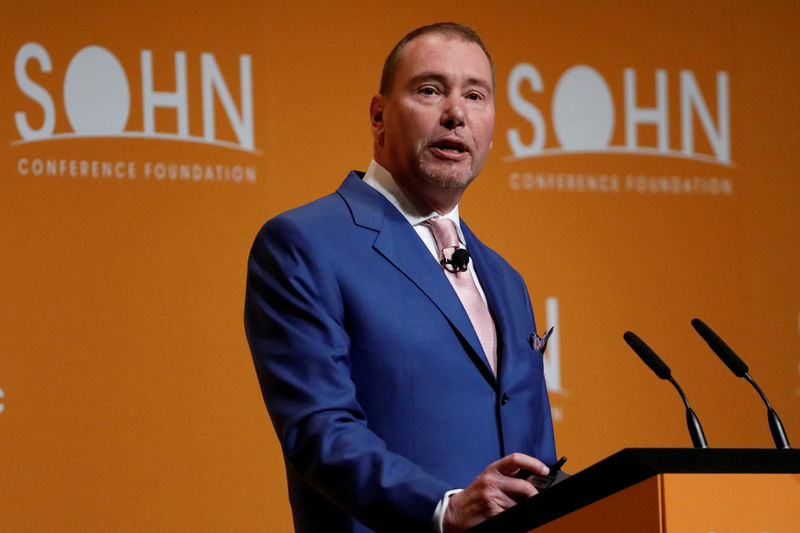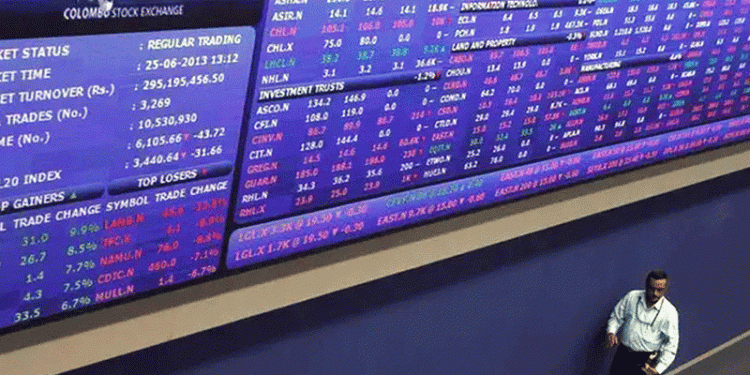 © Reuters. FILE PHOTO: Jeffrey Gundlach, CEO of DoubleLine Capital, speaks during the Sohn Investment Conference in New York
© Reuters. FILE PHOTO: Jeffrey Gundlach, CEO of DoubleLine Capital, speaks during the Sohn Investment Conference in New YorkBy Jennifer Ablan and Trevor Hunnicutt
NEW YORK (Reuters) – Jeffrey Gundlach, chief executive of DoubleLine Capital, said Tuesday on an investor webcast that the Standard & Poor’s 500 Index is likely to go below its February 2018 lows.
Gundlach said global economic growth is slowing and weighing on corporate profitability, which will pressure U.S. stocks. But another dynamic that has been adding to the sell-off in equities is the unwind of the Federal Reserve’s massive balance sheet, he said.
Gundlach, who oversees more than $123 billion in assets and known on Wall Street as the Bond King, said there has been a high correlation between central bank balance sheets and the global equity markets.
With the Federal Reserve shrinking its balance sheet, which quintupled in size after the financial crisis, the equity markets have mirrored that and dropped, Gundlach noted.
“The breadth of the decline in the global equity market is pretty powerful,” he said.
Gundlach, citing an Atlanta Fed research study, calculates $600 billion of Federal Reserve asset unwind is equivalent to three interest rates hikes.
“Maybe that is what really has gotten things in the wrong way,” Gundlach said about the S&P sell-off. “The stock market has been following the Fed’s shrinkage of the balance sheet of quantitative tightening to the downside.”
The intraday low for the year in the S&P () was on Feb. 9, when it bottomed at 2532.69. The low close for the year was on April 2 at 2581.88. Tuesday, the S&P closed at 2636.78.
“Many equity markets are down over 20 percent, which some people call a bear market,” Gundlach said. “I don’t really define bear markets as a certain fixed arbitrary percentage. I think of it more as mood. And certainly, the set up for the equity markets look like a bear market going into the middle of this year…the global equity market which is strongly in a bear market at the present time.”
Gundlach said the bond market rally has been unimpressive given the stock market woes because of the unusual combination of the exploding U.S. deficit and rising Fed interest rates, which he characterizes as a “suicide mission.”
That said, the flat Treasury yield curve gives the Fed “a lot of reasons for concern,” Gundlach said.
Fusion Media or anyone involved with Fusion Media will not accept any liability for loss or damage as a result of reliance on the information including data, quotes, charts and buy/sell signals contained within this website. Please be fully informed regarding the risks and costs associated with trading the financial markets, it is one of the riskiest investment forms possible.
Source: Investing.com




























